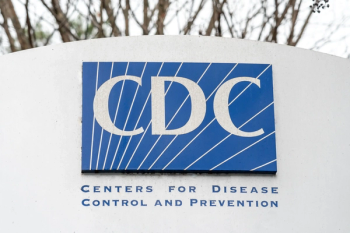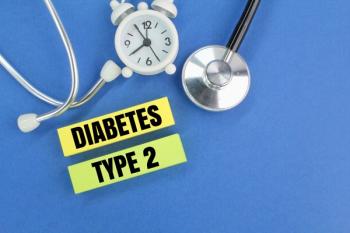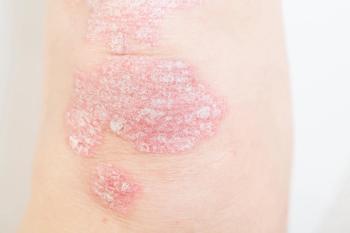
The clinical report replaces a 2010 report, as food allergy impacts up to 10% of children, with anaphylaxis estimated to occur in 1 in 15 schools per year.

The clinical report replaces a 2010 report, as food allergy impacts up to 10% of children, with anaphylaxis estimated to occur in 1 in 15 schools per year.

Thomas Crawford, MD, said SAPPHIRE trial data show apitegromab provides clinically meaningful strength gains for children with SMA by targeting muscle in addition to motor neurons.

Try to diagnose this patient with a history of receptive-expressive speech disorder and anxiety.

Try to diagnose this patient with a history of receptive-expressive speech disorder and anxiety.

Members of the Contemporary Pediatrics Editorial Advisory Board react to the Advisory Committee on Immunization Practices' September 2025 meeting.

A quick look into some of the top sessions occurring at the 2025 American Academy of Pediatrics National Conference & Exhibition, being held from September 26-30, 2025, in Denver, Colorado.

Observations were not specific to apitegromab, and the CRL did not cite any other approvability concerns related to efficacy and safety data.

The FDA announces significant updates on acetaminophen risks in pregnancy and approves leucovorin calcium for treating CFD in children.

Zilganersen met the primary endpoint of gait stabilization, showing statistically significant benefit on gait speed and favorable safety.

The planned phase 2 study of SAT-3247 will evaluate safety, tolerability, and functional outcomes in children with Duchenne muscular dystrophy.

The federal agency granted accelerated approval to elamipretide HCl to treat patients with Barth syndrome.

A study of 1.2 million children found no causal link between prenatal opioid use and autism or ADHD.

The Committee voted against a proposed recommendation that "state and local jurisdictions should require a prescription for the administration of a COVID-19 vaccination.

Rezpegaldesleukin improved disease severity and patient-reported outcomes in a phase 2b atopic dermatitis trial with sustained benefit.

The Phase 3 SURPASS-PEDS trial found tirzepatide improved glycemic control and weight outcomes in youth-onset type 2 diabetes, with benefits lasting one year.

In this video interview, John Browning, MD, comments on the recent pediatric indication approved for ruxolitinib to treat atopic dermatitis.

The FDA has approved an additional indication for Incyte's ruxolitinib cream to include pediatric patients.

New phase 3 data show icotrokinra maintained high PASI90 responses in pediatric and adult patients at 1 year.

According to the FDA, infant monitors sold without agency authorization pose safety risks and are not approved to prevent SIDS or SUID.

The agency "tentatively concluded that its use has been abandoned by industry and that the color additive regulation is outdated and unnecessary."

Thao-Ly Phan, MD, MPH, highlights how lessons from pandemic-related weight gain can guide pediatricians in addressing stress, prevention, and whole-child health.

Ibrahim Gwarzo, MBBS, DrPH, MPH, explains his study that found timely opioid administration was associated with lower hospitalization rates for children with uncomplicated sickle cell pain.

Richard A. Bermudes, MD, underscored the need for pediatricians to integrate ongoing conversations into well visits in this video interview.

The updated label is based on real-world data collected since B-VEC was launched in the United States, following its approval in May 2023.

According to new, real-world data for trofinetide, caregivers reported quality-of-life, alertness, and interaction improvements at 12 months of treatment.

Get caught up with Contemporary Pediatrics! This list helps you navigate our top stories from the week, all in one place.

Children diagnosed with COVID-19 gained more weight than COVID-negative peers, especially after diagnosis, during the pandemic.

Study author David Brousseau, MD, MS, explains the benefit of a child being able to go home after a sickle cell disease-associated ED visit.

Prompt opioid dosing in emergency care may reduce hospital stays for children with sickle cell disease pain, new research revealed.

Ji-Hyun Lee reports that short surgical exposure to sevoflurane did not affect IQ, behavior, or language outcomes in infants and toddlers.